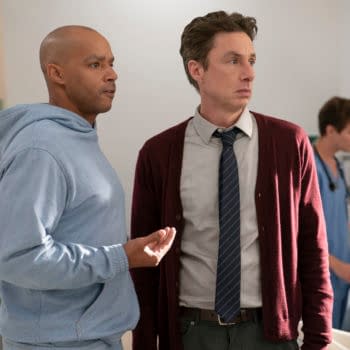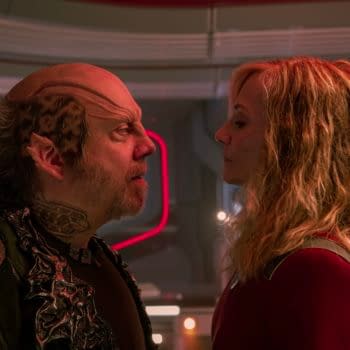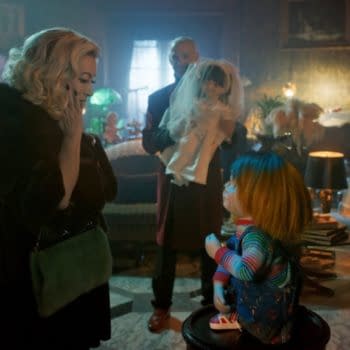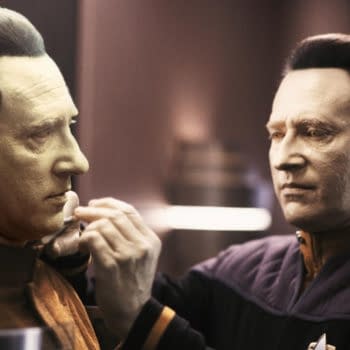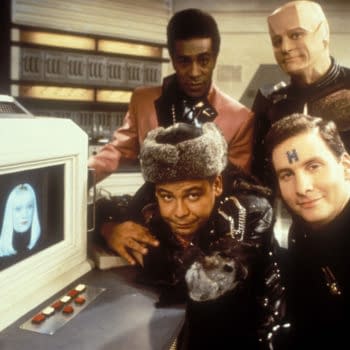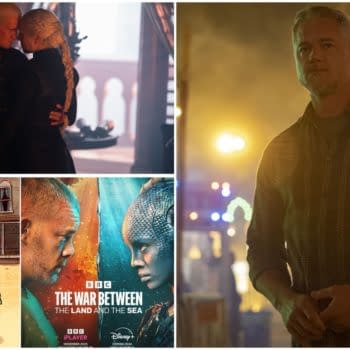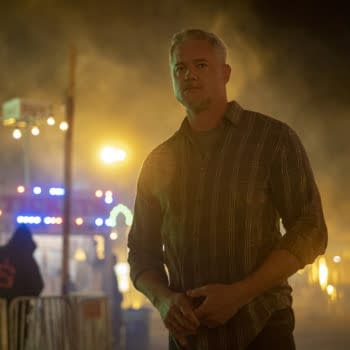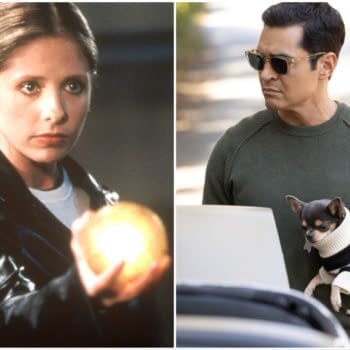Posted in: Fox, Review, The Orville, Trailer, TV | Tagged: action, Adrienne Palicki, bleeding cool, cable, comedy, deflectors, drama, episode 7, Jessica Szohr, Kevin Daniels, Moclan, Moclus, Peter Macon, Review, sci-fi, science fiction, season 2, seth macfarlane, Seth McFarlane, star trek, streaming, television, The Next Generation, The Orville, thriller, tv, Worf
'The Orville' Season 2, Episode 7 "Deflectors" Blurs Lines of Empathy, Indignation [SPOILER REVIEW]
An exercise in cohesion for FOX's The Orville turns into another culture clash with the Moclans in the latest episode "Deflectors."
The episode begins with Cassius (Chris Johnson) and Cmdr. Kelly Grayson (Adrienne Palicki) not seeing eye-to-eye on where their relationship should go. While Cassius wants to eventually settle down and start a family, Kelly's far more career-minded and she is not ready to deal with the prospect of marriage again at the moment after what happened with her ex, Capt. Ed Mercer (Seth MacFarlane). In a role reversal, Cassius becomes insecure trying to reconnect with Kelly after her request for a clean break and no further communication – while Ed plays the role of "best friend" with empathy given his own personal experience with stereotypical male insecurity in a breakup.
That becomes the subplot to the joint activity between the Moclans and the Orville, with the revered Moclan engineer Locar (Kevin Daniels in a powerful performance) assisting Lr. Cmdr. John LaMarr (J. Lee) and his engineering crew improve the deflector array for defense use… and Locar also happens to be Bortus' (Peter Macon) ex.
What turns to initial awkwardness with Bortus' evasiveness, it becomes clear why. Despite being mostly a homogenous species, Moclans are traditionally set in their ways – which has become more an issue with the Orville. The Planetary Union reflects many western values as an open society. Mocclans are predominantly a male species and rigidly defined in traditionalism.
We also find like in past episodes, they're highly intolerant when their own astray from their ways. Bortus finds himself at the center in a moral grey area between the Planetary Union and Moclus, similar to when Worf (Michael Dorn) experiences similar conflict when the Klingons' way of handling things conflicts with Federation principles in Star Trek: Next Generation. Often, Worf would temporary resign his post to deal with Klingon-specific affairs the Federation can't ethically involve themselves.
This is where The Orville draws heavy inspiration from. There are traditions where the Planetary Union has no problems with like in "Ja'loja" the traditional annual urination. Then there's the gender reassignment surgery of biological female infants on Moclus in "About a Girl" where Bortus' still harbors resentment with his mate Clyden (Chad L. Coleman) in proceeding. Moclans hold proud in their traditions no matter what the subject might be. Naturally, they resent meddling from outsiders.
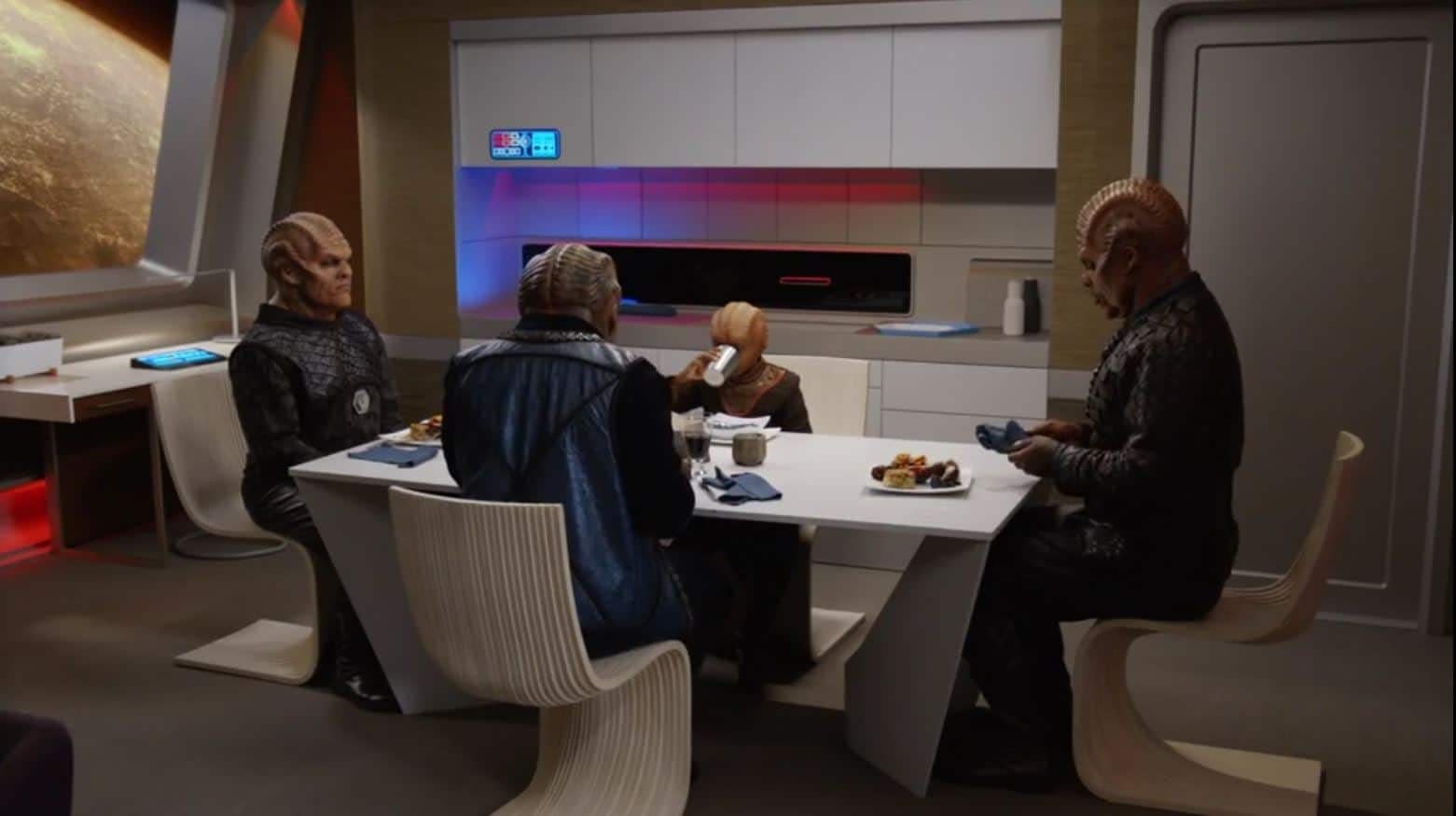
This is the focus of the episode: with Moclans being traditionally hermaphroditic/homosexual species that can produce eggs as males. Locar harbors heterosexual interspecies feelings, a fact Bortus held in shame more than just being an ex: being a Mocclan heterosexual is also a severe crime on Moclus.
!['The Orville' Season 2, Episode 7 "Deflectors" Blurs Lines of Empathy, Indignation [SPOILER REVIEW]](https://mlpnk72yciwc.i.optimole.com/cqhiHLc.IIZS~2ef73/w:auto/h:auto/q:75/https://bleedingcool.com/wp-content/uploads/2019/02/The-Orville-Talla-and-Lokar-s02e07-2.jpg)
When Locar reveals his feelings for Talla (Jessica Szohr), it becomes clear the complications it creates, aside from his sudden confession. The fact of having to stay closeted this entire time turns to the inevitability of being a pariah to his people. It's a strong commentary on contemporary culture since certain sects of organized religion declare homosexuality both a sin and a crime.
While we can judge our own values within our own country, do we have a right to impose our standards upon others? It's the constant dilemma the Orville is not afraid to challenge. Whereas Capt. Jean-Luc Picard (Patrick Stewart) in TNG is hesitant in getting involved in interfering with Klingon politics, Ed and the crew of the Orville also have to face the conflict between the Planetary Union morals and respecting the laws and traditions of an ally.
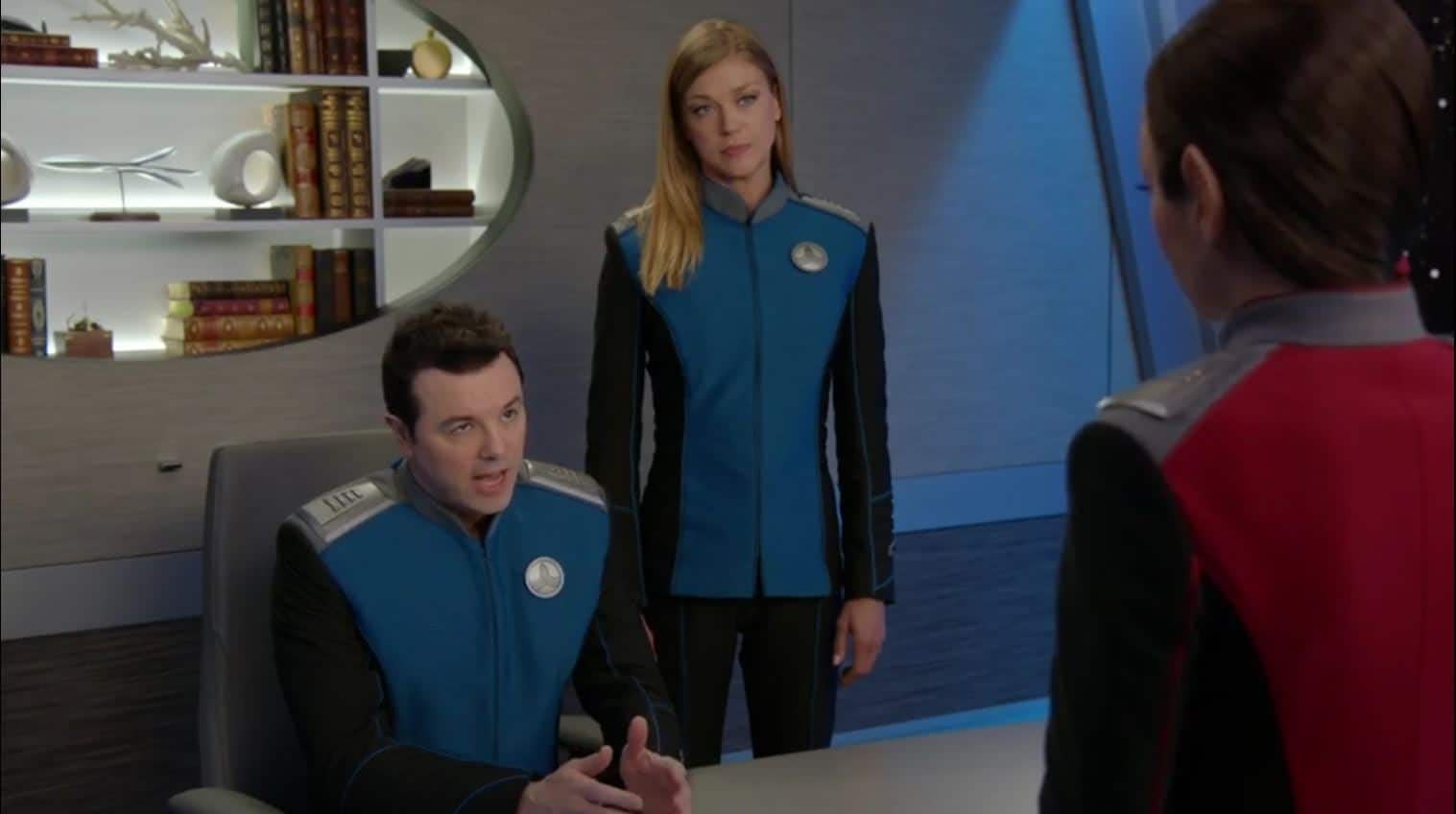
Taking this out of science fiction, there are many clear differences within the world where the West would largely detest how a country treats minorities (either ethnically or religiously) or enact policies considered misogynistic by much of the first world. It's the constant question as a world we have to deal with.
At what point do we sacrifice empathy in favor of declaration of indignity? Are we ethically obligated to be agents of change within our capable influence or should we respect the sovereignty and hope change can come from within? Locar's persecution is an important message to send to the audience, but will it register with the people we need to understand the idea the most?
The Orville returns to FOX with "Identity, Pt. 1" on Thursday, February 21.







